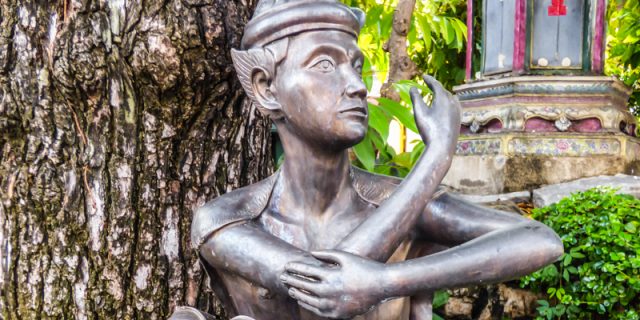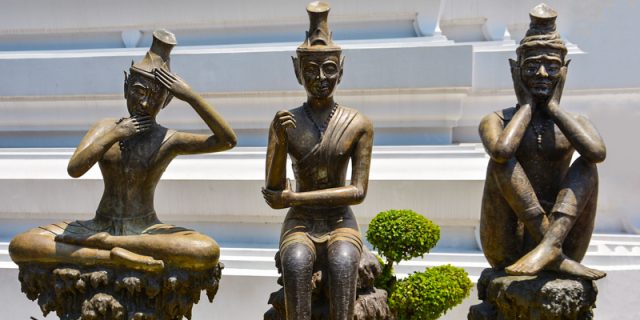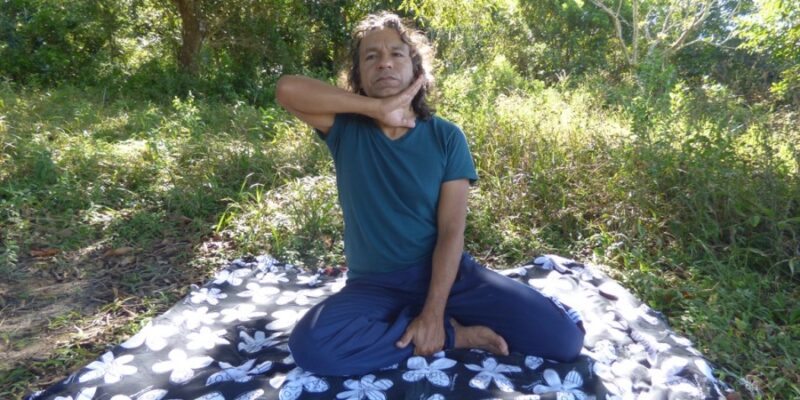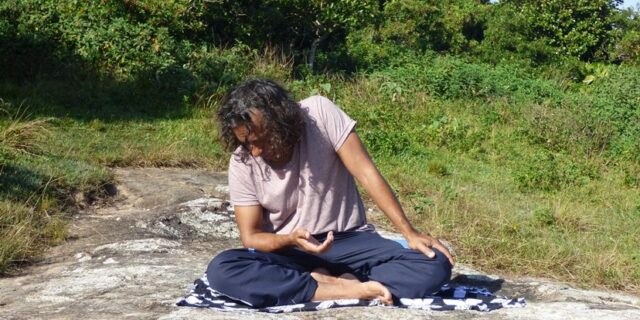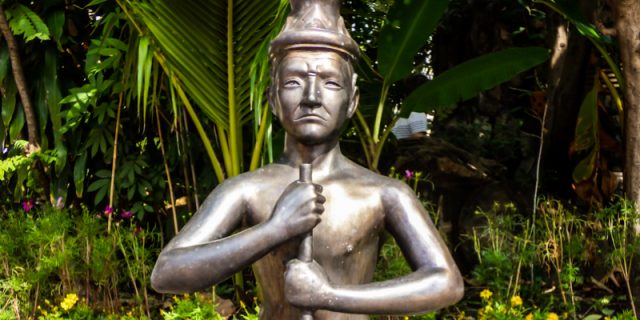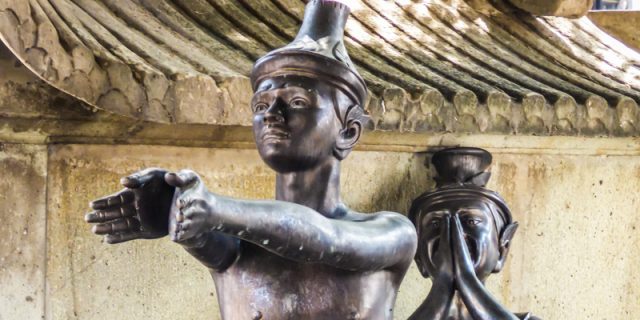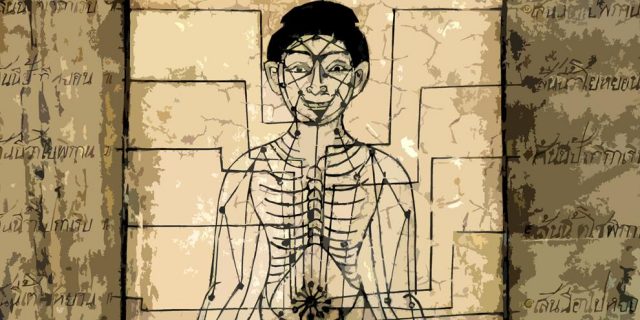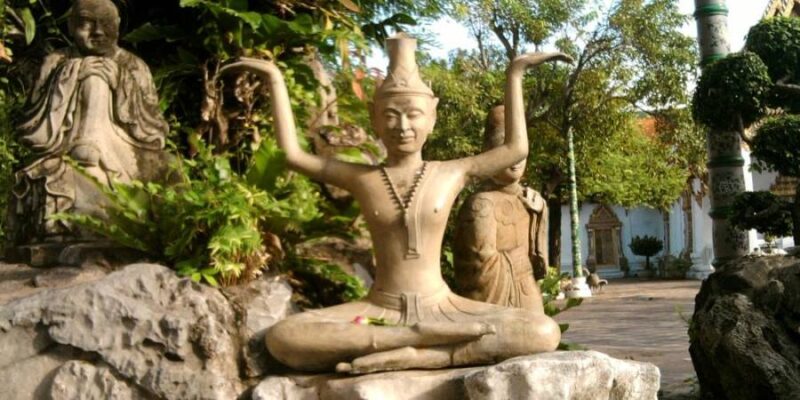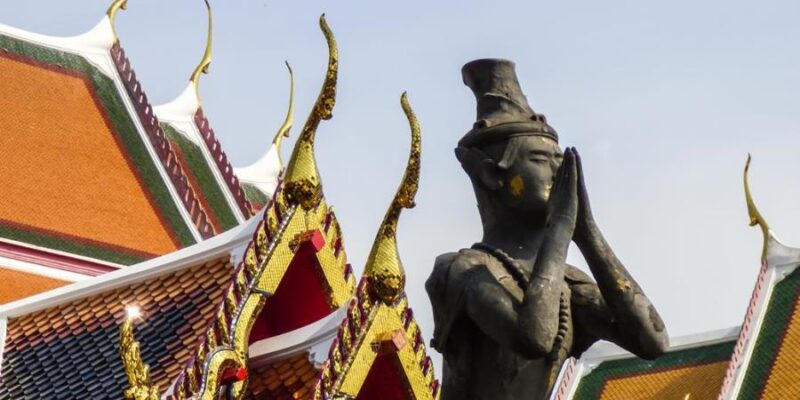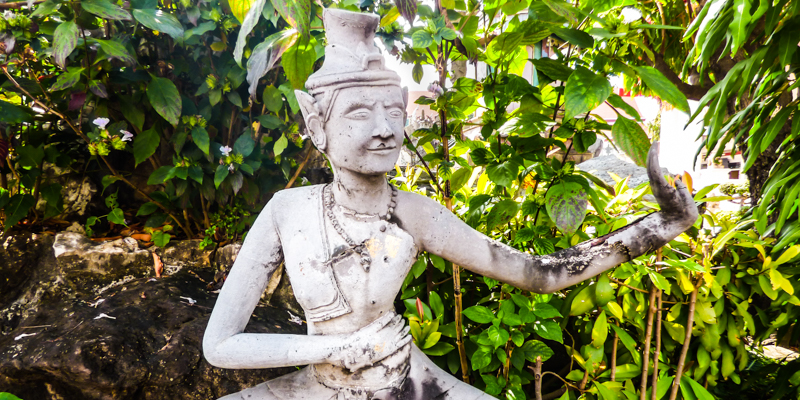
The Thai word Reusi, like used also in the traditional Thai healing art Reusi Dat Ton, comes from the Indian Sanskrit word Riṣhi, which means Seer.
In India, the Rishis were seen as enlightened beings and they are regarded as the composers of the ancient sacred Hindu religious text and hymns, notably the Vedas. Also called Sadhus or Sages, they realized the supreme truth and eternal knowledge of man, world, and universe after intense meditation.
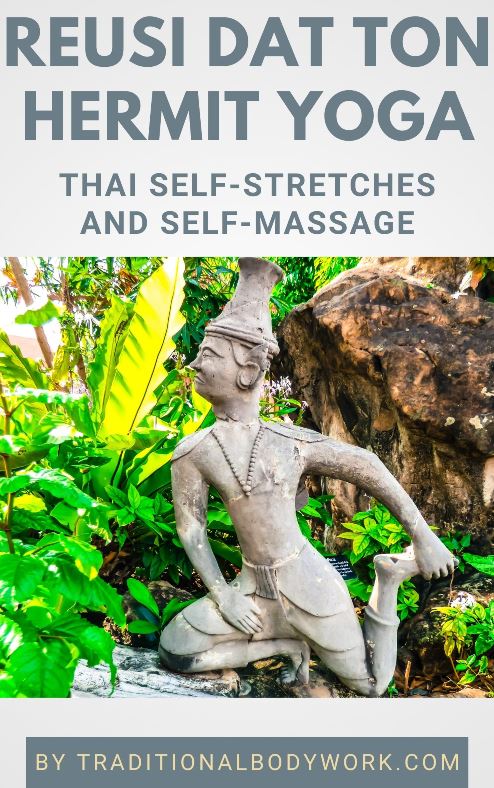
By the way, the phenomenon of ascetics and hermits striving after spiritual enlightenment and sacred knowledge for the benefit of mankind can be found in many ancient cultures across the world.
The Rishis are thought to be the discoverers of mantras and natural sciences which were recorded in the Vedas and other Indian texts. Today, the Rishis or Great Sadhus are considered practitioners descending or related to Brahma, one of the highest Gods in Hinduism associated with creation, knowledge, and the Vedas.
In Thailand, the Reusis (also called Lersis) point to many types of practitioners who are practicing so-called esoteric sciences. They handed down sacred knowledge over thousand of years, and they often have the appearance of a hermit or ascetic. Nevertheless, a Reusi can have or take any “form,” like, for instance, a householder, a gardener, shop-owner, physician, forest dweller, a monk, or Yogi, among any other “normal” human outward appearance.
Some Reusis live in a village or city in the midst of society, others live in seclusion in the forests, in the mountains, caves, deserts or on islands, and every Reusi may practice different “sciences,” such as Yoga, massage, alchemy, music, mantras, palmistry, meditation, medicine, astrology, and the like. Often a certain Reusi is specialized in some specific esoteric science and regarded as the guardian of that particular knowledge.
The typical idea of the Thai Ruesi is that of the ascetic who lives in caves or in the forest and spend his (or her) life practicing meditation in seclusion. It’s from these type of hermits where the term and practice Reusi Dat Ton emerged, meaning “the ascetic who stretches himself.” Today, Reusis may still live solitary lives, but many are simply living among people offering their services.

Whatever the case, and wherever they may live, the Reusis focus on understanding nature and living a natural way of life, in balance with the natural elements, the Gods and spirits in accordance with “natural law.” Just like Buddhist monks, they aim at benefiting mankind and nature, while focusing on a spiritual practice.
In Thailand, we often see the Reusi depicted as wearing animal (tiger) skin clothing, although they can also wear white robes or reddish-brown colored robes. The animal skin clothing comes from the fact that, in the past, the majority of Reusis lived in the forests or mountains having no contact with people, and sometimes made clothes from the things they found in their surroundings, such as the skin of a dead animal.
In theory, anyone can become a (Thai) Reusi, but it takes fierce commitment, adherence to many rules and precepts, a long training period, and foremost a competent teacher from a certain tradition i.e. lineage. Becoming a Reusi is basically a commitment for life and that’s why being a Reusi is certainly not for everyone.
Some Informative Websites about Reusis
Lersi Net
Rusie Dotton Net
Wikipedia Rishi Topic
Magie du Bouddha
Thailand Amulet Net
Sakyan
Lanna Thai Traditional Medicine






